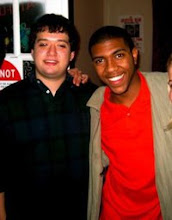Tuesday night was a lot of fun. We went with Agnes and Betty to a bar and restaurant to hear one of Kampala’s most popular bands perform. The band was amazing, and I had so much fun dancing, talking, and discussing two particular people around us. First, there was an older European man sitting at the table next to us with the tightest pants hugging his body. Every time he stood up, we laughed hysterically especially when he started dancing. He danced with one hand because he had a cigarette in the other. Luckily, he had no idea we were laughing at him because laughter was coming from the table the whole evening as Betty and Agnes are so much fun to be with. The second funny man was a Ugandan who performed after Qwela, the band we were there to see. He had the most terrible voice and butchered Coldplay’s “Don’t Panic.” Next time you see me, I will do my imitation for you if you ask nicely.
On Wednesday, we went with Alex and Teddy to an orphanage on the outskirts of Kampala. Run by a woman referred to by the children as Aunt Penny, this particular orphanage is an example of an under-funded establishment. Penny told us that the facilities might be misleading in regards to the wealth of the orphanage. Each child has there own bed and the rooms are kept very neat. We asked if having the children keep the rooms clean was a challenge. The answer was no. They are so grateful to have a place to stay that they treat their space with the utmost respect.
Four children – Beatrice, Susan, Charles, and Megisha – came from school to spend time with Nick and I. After we toured the facilities, Penny asked them to bring chairs outside for us to sit in. The chairs were placed in a line. Penny, Teddy, Nick, and I sat while Alex stood in the corner speaking with the children. Penny called Beatrice over and told us to ask any questions we would like. There was something so strange about sitting in a chair while a child stood almost kneeling in front of me. I felt as if I was being categorized as higher status, which led me to feeling embarrassed and ashamed. Nick looked over at me and whispered, “Do you feel weird?” I did, and I was relieved to know Nick felt the same way.
Despite how uncomfortable I felt, the stories of the four children and the way Teddy – a successful woman with similar experiences – interacted with them was remarkable. Aunt Penny had told us Charles used to run away to rejoin his friends to participate in child labor so he could earn 500 Ugandan Shillings – 15 cents. Teddy asked if he missed the streets. He smiled and said, “no.” At this point, Aunt Penny said, “I should probably go so you get honest answers.” Previously, we had learned Charles sometimes served as a preacher to the community. Knowing Charles, a boy with such spirituality and opportunity, missed his friendships on the tough streets of Kampala was a powerful reminder of the emotional hardships faced by orphans.
Susan was the fourth child we spoke with. She approached, kneeled, and told us about her favorite subjects in school and dreams. Teddy asked, “Do you still have family on the streets?” Stillness. “It’s ok. It’s ok,” Teddy said breaking the silence, and tears began streaming down Susan’s face. Her raw emotions awakened me and caused a shift in our conversation with Susan, Charles, Megisha, and Beatrice from institutionalized to real.
In the previous 25 minutes, the children shared their big dreams. Beatrice wants to be an accountant. Susan and Megisha want to be doctors. Charles wants to be a judge. Teddy, looking each child in the eye, told them that she was once in their place, to take leadership roles, and be thankful for what Aunt Penny is providing them. Then Nick said, “You know what. Why don’t you come sit in the chairs and we will sit on the ground?” This was the most brilliant idea. We moved the chairs, and we sat on the ground. Right as I was taking my seat, Beatrice said "May I sing a song for you?" She began singing a beautiful religious song. Each child joined in. I do not think any song could ever have the power of this accapala powerhouse of passion. I was pleased when Beatrice asked to sing another song before we departed. I will never forget their voices.
Two important items relevant to the readers of this blog emerged as a result of this experience. Next year, Nick and I would like to start on Vanderbilt's campus a two fold partnership with this orphanage. First, we would like to begin a pen-pal program between Vanderbilt students and the children at the orphanage. Second, we would like to explore ways to assist Aunt Penny in the cost of maintaining the orphanage. Money for school fees and food is often hard to come by, and as a result, the children do not have some of the pleasures we take for granted. In middle school, there was a trend for students to make their uniform shoes sandles. We would walk on the back of our shoes. Teddy noticed Charles was walking on the back of his shoe. This was not his choice. He had outgrown his shoes and,there was not enough money for Aunt Penny to purchase a new pair. Charles has to explain to his teachers why he walks on the back of his shoe so he is not punished. I cannot imagine how that feels. If you have any ideas about how we can help, please contact Nick or I.
- Feldman
Monday, June 7, 2010
Subscribe to:
Post Comments (Atom)

No comments:
Post a Comment